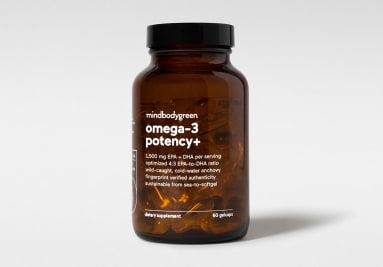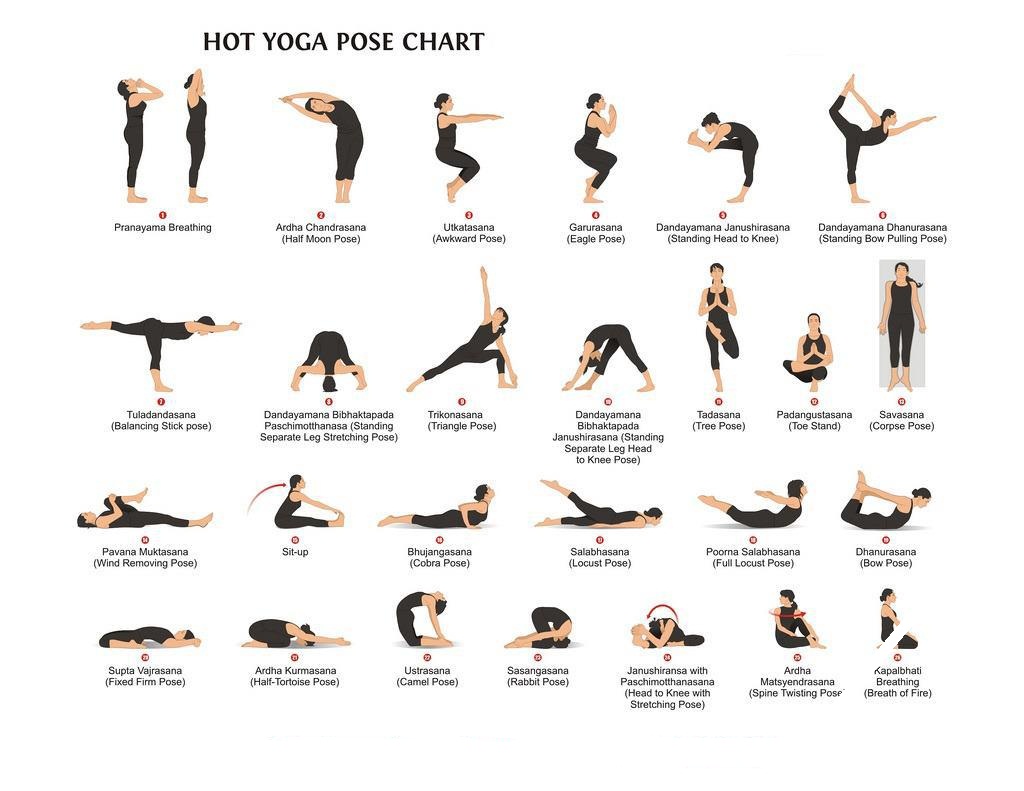Want To Age Well? Don't Skimp On This Longevity-Supporting Fat
Being strategic with nutrition can help you spend your later years in good health.

Image by BONNIN STUDIO / Stocksy September 8, 2023 We carefully vet all products and services featured on mindbodygreen using our Our selections are never influenced by the commissions earned from our links.
Advertisement
This ad is displayed using third party content and we do not control its accessibility features.
Omega-3s & longevity
A study published in the Journal of the American Medical Association1 found that adults with higher levels of marine omega-3s (i.e., EPA and DHA) had the slowest rate of telomere shortening over five years.
What does that mean, exactly? Telomeres are the chromosomal tips that protect our DNA from stressors. Evidence indicates that telomere length is a marker for biological aging, and the longer your telomeres, the greater your longevity.
This study highlights the importance of increasing your omega-3 index, as it may help you live a longer and healthier life. The omega-3 index is a useful blood test co-invented by William Harris, Ph.D., FAHA, that assesses your omega-3 status. A higher omega-3 index is associated with better heart health and cardiometabolic parameters.
In 2021, a study published in the American Journal of Clinical Nutrition2 (and co-authored by Harris) put omega-3 status and longevity to the test. The goal of the study was to analyze the lifestyle habits and omega-3 levels of people with heart-health concerns over 11 years to determine the impact they have on life expectancy. While there were a number of lifestyle factors at play throughout the study that also affect longevity, the results indicated there is, in fact, a clear correlation between higher omega-3 levels and living long lives.*
Advertisement
This ad is displayed using third party content and we do not control its accessibility features.
How omega-3s support healthy aging
Research on this topic is ongoing, and the exact mechanics behind how omega-3s are affecting longevity are still up for debate. That said, there are a number of well-researched omega-3 benefits that have been proven to support us now and later in life—including heart, brain, eye, and joint health:*
Advertisement
This ad is displayed using third party content and we do not control its accessibility features.
In addition to its important role in the brain, DHA is also the most abundant fatty acid found in the eyes. DHA is critical for the optimal functioning and regeneration of rhodopsin9—a visual pigment that plays a crucial role in converting light to visual images.*
As you can imagine, this omega-3 is important to both the growth and development of the eyes early in life, and then later in life too, when maintenance of vision is a vital indicator of longevity.* In fact, those who consume diets rich in omega-3s are 25 to 35% less likely to experience age-related vision concerns.*
Advertisement
This ad is displayed using third party content and we do not control its accessibility features.
The takeaway
If it isn't clear by now, omega-3s are superstars at helping us support all areas of our health as we age.* However, the true challenge is consuming enough omega-3s to reach an optimal omega-3 status throughout life.
While eating two or more servings of fatty fish each week, per the American Heart Association's recommendations12, is an excellent way to support healthy omega-3 levels, eating that much fish simply isn't practical (or feasible) for many Americans. Furthermore, two fish a week is simply the baseline recommendation—1 gram or more of EPA and DHA is considered a superior daily dose for cardioprotective benefits (a cornerstone of longevity).*
As many of the studies discussed above suggest, taking a high-quality omega-3 supplement daily is an easy and effective way to maintain optimal omega-3 levels.* Consider adding a fish oil supplement, such as mindbodygreen's omega-3 potency+, to your daily routine for a high-potency, sustainable, and traceable source of marine omega-3s—guaranteed. And for more picks, check out our omega-3 supplement roundup.
†Consuming EPA and DHA combined may reduce the risk of CHD (coronary heart disease) by lowering blood pressure. However, FDA has concluded that the evidence is inconsistent and inconclusive. One serving of omega-3 potency+ provides 1.5 grams of EPA and DHA.
If you are pregnant, breastfeeding, or taking medications, consult with your doctor before starting a supplement routine. It is always optimal to consult with a health care provider when considering what supplements are right for you.

 ValVades
ValVades 

































